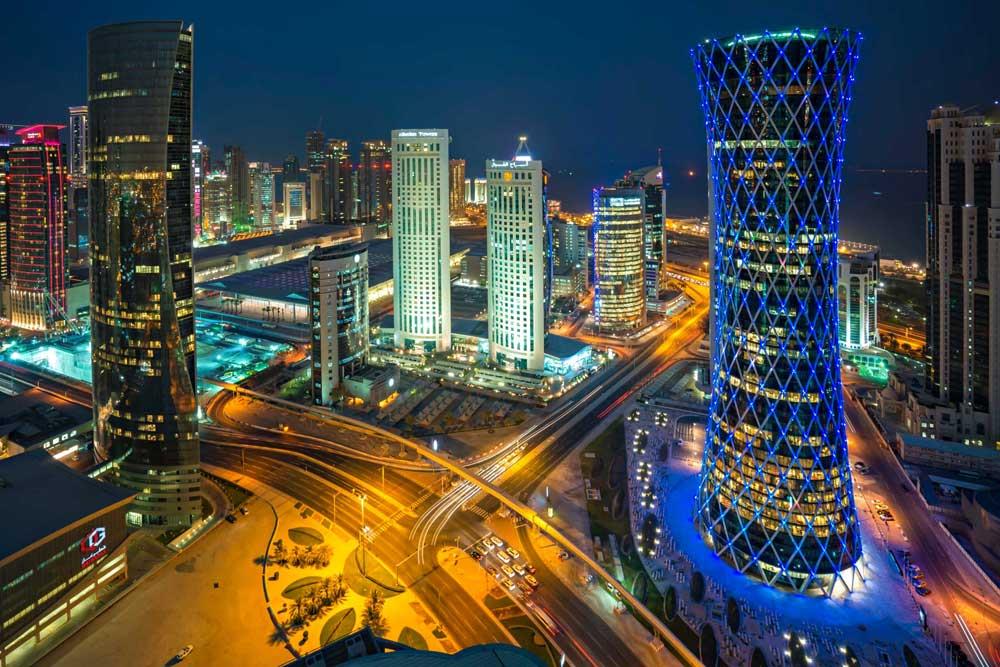
'Qatar Makes Strides In Waste Recycling'
Doha, Qatar: A top official has said that the Ministry of Municipality has made significant progress in waste recycling and utilisation.
Director of the Waste Recycling and Treatment Department at the ministry, Eng. Hamad Jassim Al Bahr told Qatar News Agency (QNA) that one of the most important ways to protect the environment is through recycling and sustainability.
He emphasised that recycling is a vital issue, and Qatar has facilitated it through various solutions and technologies that contribute to environmental preservation, pollution reduction, resource and energy conservation, consumption reduction, and improved production process efficiency.
Regarding Qatar's success in recycling all waste generated during the FIFA World Cup Qatar 2022, he said achieving a 100% recycling rate was a significant milestone, making it the first time this rate was achieved in the history of FIFA World Cups.
In showcasing Qatar's environmental sustainability efforts, Al Bahr highlighted the importance of the Mesaieed waste management facility, which commenced operations in 2011. This centre is one of the largest specialised waste management facilities in the Middle East, covering an area of 3 square kilometres with a daily capacity of 2,300 tonnes.
The centre has successfully transformed waste into energy, producing approximately 269,000 megawatts of electrical energy in 2020, some of which is used for its own operations, and the rest is supplied to the national grid.
In line with Qatar's commitment to the highest environmental sustainability standards, they continuously monitor climate-related project activities.
According to data from the Planning and Statistics Authority, the total number of new projects subject to environmental impact assessment increased from 2,428 projects in 2021 to 2,676 projects in 2022, reflecting a growing environmental focus alongside developmental progress.
The projects subjected to assessment in the past year included 572 large projects, 1,433 small and medium-sized projects, and 671 industrial projects.
The report also indicated that 99.8% of treated wastewater in 2022 met environmental standards. Environmental statistics in Qatar indicate that the number of sewage treatment plants reached 27, with an annual growth rate of 3% from 2014 to 2020. These plants had a design capacity of 1,022 cubic metres per day in 2020. Compared to previous years, the annual growth rate of the processing capacity of sewage treatment plants increased by 6 percent from 2014 to 2020. These plants received a total of 291 million cubic metres of sewage water per year, of which 285 million cubic metre was treated, constituting 98 percent of total sewage water in 2020. Treated wastewater was utilised for agricultural irrigation, with a total of 76.13 million cubic metres used annually. Additionally, 113.34 million cubic metres of treated wastewater was used for landscaping irrigation, while around 50.60 million cubic metre was injected into underground reservoirs annually.
Collecting and treating wastewater and having the necessary infrastructure for its treatment have environmental benefits, including reducing pollutants' transfer to groundwater, preserving biodiversity affected by wastewater pollutants, reducing nutrient runoff into coastal waters, and consequently lowering coastal water pollution. Treated sewage water serves as an alternative water source, reducing pressure on water resources and enhancing their sustainability, particularly in countries facing water scarcity. This enables the reuse of high-quality water in agriculture, landscaping, or other applications. In the same context, Ahmed Jasim Al Jolo, an environmental and sustainability expert, affirmed that Qatar has prioritised environmental and sustainability issues under Qatar National Vision 2030 and its development strategies.
He noted that waste management receives special attention due to the government's commitment to reducing the impact of waste on health and the country's aesthetics, while promoting waste reduction practices.
This is especially important given Qatar's economic growth across various sectors such as construction, industry, commerce, and agriculture.

Legal Disclaimer:
MENAFN provides the
information “as is” without warranty of any kind. We do not accept
any responsibility or liability for the accuracy, content, images,
videos, licenses, completeness, legality, or reliability of the information
contained in this article. If you have any complaints or copyright
issues related to this article, kindly contact the provider above.


















Comments
No comment